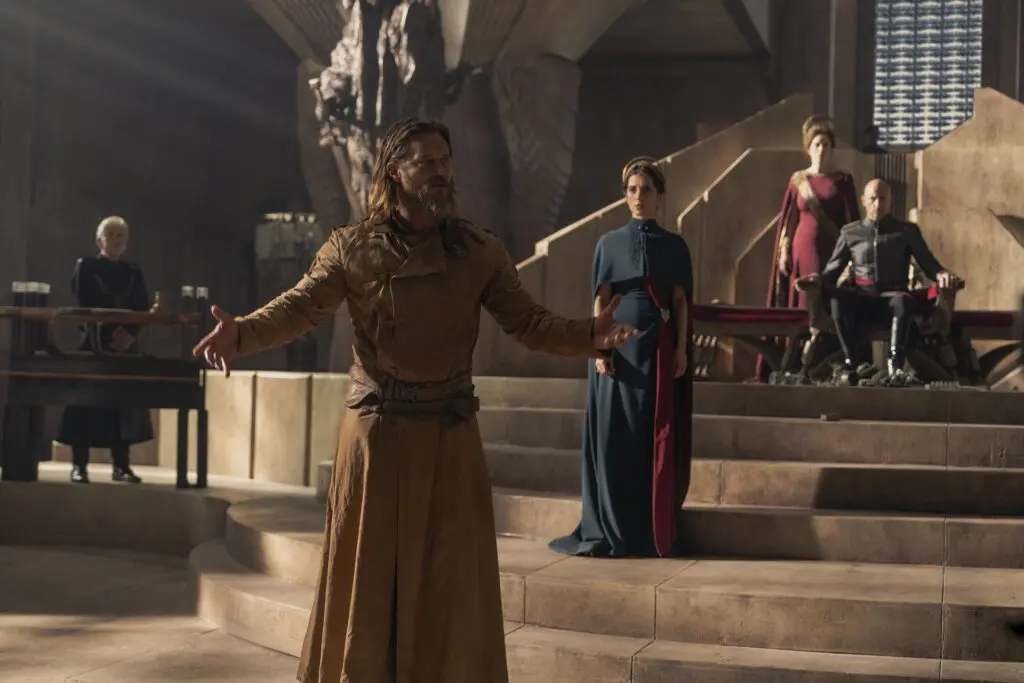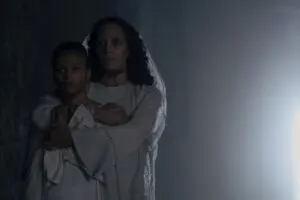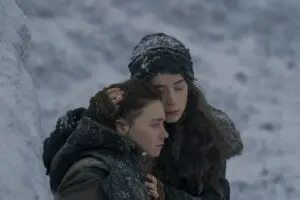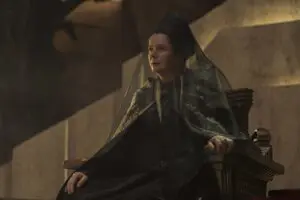Summary
Dune: Prophecy benefits from Desmond Hart’s nutcase theatrics in Episode 4, but there’s a great deal of stuff happening here that we’ll probably need more than the remaining two episodes to adequately address.
Dune: Prophecy is a lot better when Desmond Hart is around, isn’t it? I suggested that in my recap of the previous episode, which brushed us up on our Harkonnen lore through liberal flashbacks, and Season 1, Episode 4, “Twice Born”, proves me right. This is a better chapter, but it’s also a denser, heavier one that asks a few too many awkward questions of whether the HBO show’s two remaining instalments can satisfyingly pay off what is proving to be quite the thickening plot.
It’s all present-day stuff here, ping-ponging between Valya, Tula, and Desmond himself as various things happen, most without a satisfactory explanation for why they’re happening. All in due time, of course, but Dune: Prophecy is running out of that at an alarming rate, and there’s a chance that the long-game play for a multi-season watercooler show outweighs the downsides of not tying up this arc with a nice little bow. We’ll see.
But in the meantime, let’s recap.
It Was All A Dream
In science-fiction and fantasy, shared dreams are never good, which is especially alarming for the Acolytes of the Sisterhood, since they’re (almost) all having the same rather troubling one. In case you needed a reminder that this is part of the Duniverse, Shai-Hulud yawning out of the desert sand and gobbling up the sisters serves as a nice reminder.
It’s well-depicted, this. The show has delved into horror-adjacent territory before, and it does so again here in “Twice Born” set to the ominous backbeat of a thumper, the rhythmic device used in the movies to summon Arrakis’s famous sandworms. The sisters see their own deaths, ghosts of themselves with their eyes sewn shut and their throats slashed, and cold, robotic blue eyes waiting for them in the darkness of Shai-Hulud’s maw.
Which is worrying, obviously. Tula gets the Acolytes to pop pills and sketch what they saw in a narcotic trance, which produces pages and pages of frantic scribbling depicting dunes, death, worms, and blue eyes. Believing that this is connected to Kasha’s death in the premiere, Tula orders the whole matter not to be spoken about to prevent panic, while she implores Lila to wake up so that she can become “twice born” and disprove Desmond’s Messianic status as the subject of the Tiran-Arafel prophecy.
The funny irony here is that the interim Mother Superior of an order dedicated to training young women how to lie is trying to keep a secret from all the trainees. It’s not a tenable situation, which Tula has obviously intuited, which is why her own dreams are plagued by Sister Emeline discovering the truth about Lila and Anirul. She’s willing to kill to preserve that secret – as the dream and her past both confirm – but the truth always comes out eventually.
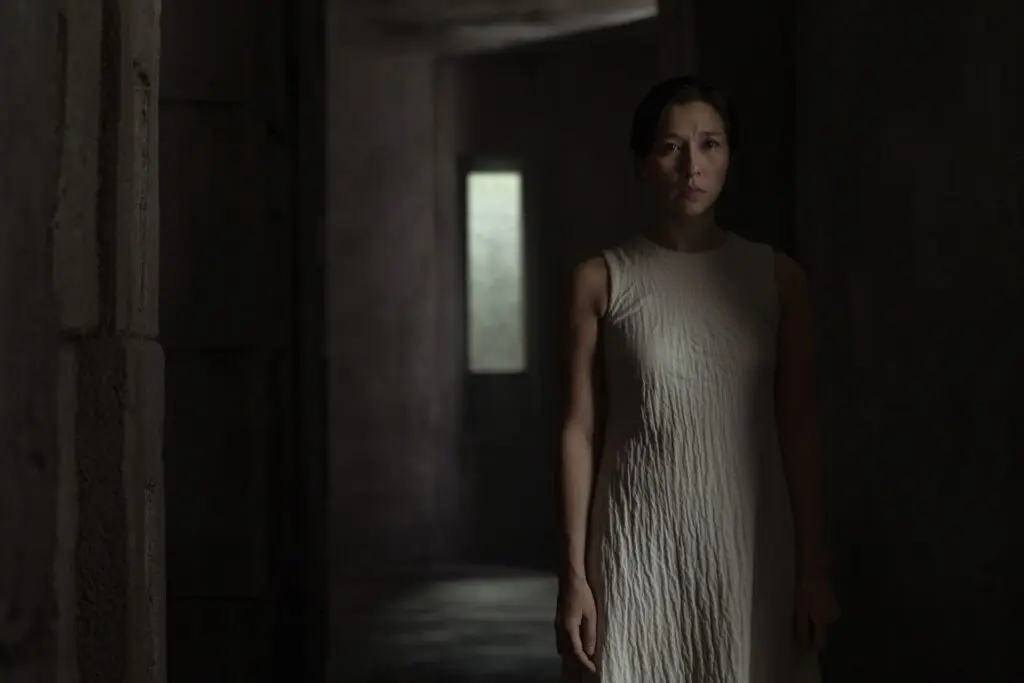
Aoife Hinds in Dune: Prophecy | Image via WarnerMedia
A Family Affair
After being banished from court in the previous episode, Valya turns to her own eccentric kin in order to finagle her way back into the corridors of power. If she can get the Harkonnens back into the Landsraad, she can win back the favor of House Corrino in a typically complex plot that goes a little something like this…
Valya offers her services as Truthsayer to her uncle Evgeny and Baron Harrow Harkonnen. Harrow is part of the High Council, so his being seen to cavort with the Mother Superior herself is a good look, politically speaking. But it’s also convenient for Valya because she plans to thwart an attack by the rebellion at the Landsraad gathering, saving Javicco’s life and vilifying Desmond Hart, which she’s already starting to do by feeding into the rumors that he barbecued Pruwet Richese on Javicco’s orders. The implication that Javicco pressured House Richese not to investigate Pruwet’s death would justify the Landsraad opening a formal investigation. And just like that, the balance of power would tip.
Of course, this requires the rebel attack to go off without a hitch. Horace and Keiran plan to use a forbidden explosive drone procured from an Ixian smuggler to blow the Landsraad to kingdom come, and Princess Ynez, whose family is forcing her to remain on Salusa Secundus and break bread with Desmond rather than joining the Sisterhood, is determined to help.
The problem is that the plot finds its way back to Desmond courtesy of Natalya, who is much more willing than her indecisive husband to make use of the services the odd man is constantly pitching.
Desmond Hart Gets His Way… Again
The standout sequence of Dune: Prophecy Episode 4 is the Landsraad meet, where everyone’s conflicting motivations and methods clash with a clear winner emerging – Desmond Hart, as usual.
Harrow is all set to formally accuse the Emperor of both ordering and covering up Pruwet’s death, and Ynez is ready to lay the blame for that death directly at Desmond’s feet, but oops, Desmond has a trump card. He brings in the conspirators in the drone plot – excluding Keiran, who gets away with it again – and makes an example of them to justify his killing of Pruwet as drawing a hard line in a war against Thinking Machines and their use (he had that lizard, remember.) To make his point clear, Desmond does his telepathic immolation trick and barbecues the plotters and several of the present lords with Javicco’s go-ahead, experiencing his own vision of being swallowed by Shai-Hulud and greeted in the darkness by an unblinking pair of robotic peepers.
Unlike when he sauteed Pruwet and Kasha, the toll of this many killings manifests physically on Desmond, who collapses on the ground and begins bleeding from his back, which Valya sees.
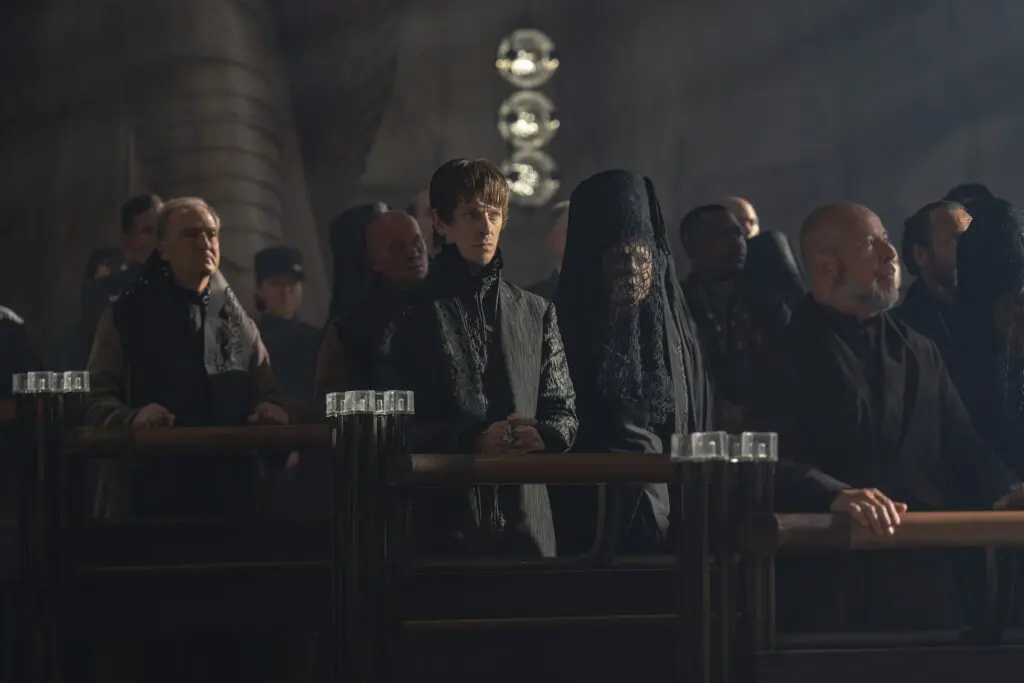
Edward Davis and Emily Watson in Dune: Prophecy | Image via WarnerMedia
Valya’s Playing the Long Game
With this, Valya is left with a few more issues to sort out. Luckily, Desmond leaving behind some of his bodily fluids means she can send the sample off to Tula to be analyzed through the Sisterhood’s breeding index. They can find out who Desmond really is, if not necessarily why he’s possessed of such specific powers. The implication thus far, especially in parallel with Lila’s resurrection, is that he has been rejuvenated through the use of Thinking Machines and spice, which is perhaps why they both seem to have the Eyes of Ibad post-resurrection (Desmond also strikes me as potentially non-human, or at least an android, but let’s not get ahead of ourselves.)
In the meantime, Valya confronts Evgeny about his lifelong mistreatment of her and then keeps his medication away from him so that he chokes to death with the stress. As the previous episode implied, Valya has by no means forgotten her family history or her desire to avenge her brother Griffin, which we’re reminded of by a portrait of him on the wall in an earlier scene and at the end of Dune: Prophecy Season 1, Episode 4 when he appears to Valya in what seems like a vision designed to reassure her.
But it’s not a vision. “Griffin” turns out to be Theodosia, whose “talent” was obliquely mentioned earlier as a last resort. In a deep cut for Duniverse fans, Theodosia is a Tleilaxu Face Dancer, someone able to assume the appearance of another. You don’t need me to tell you how useful that talent might be in an organization based on manipulating the levers of power.
All this, and only two episodes left? I, for one, am not sure whether this show can get wherever it’s going.
RELATED:

